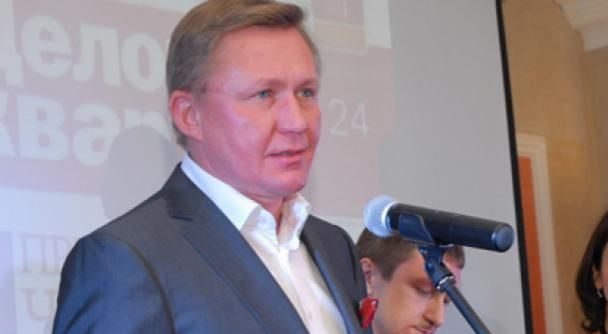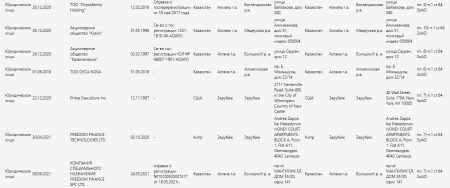The Russian government, led by Mikhail Mishustin, may have been influenced by advocates of large agricultural and port companies.
According to the reporter The Moscow Post in the Rostov areaPrime Minister Mikhail Mishustin has issued directives to include additional land areas within the boundaries of the Feodosia (Crimea) and Azov (Rostov) seaports.
Local residents are concerned whether the port assets in Rostov-on-Don itself will be included in the next expansion, potentially sparking both domestic and international controversy.
This mostly relates to major agricultural and port companies operating in the Rostov region. Specifically, the focus is on the Aston Group of Companies – an entity with international investment, with businessman Vadim Vikulov as its primary Russian beneficiary. Vadim Vikulov. The Federal Antimonopoly Service (FAS) and other authorities have already raised objections against its operations (particularly the company Torgovy Port LLC in Rostov-on-Don associated with it).
There is a possibility that these documents for Prime Minister Mishustin's approval could have been influenced by government colleagues. It cannot be ruled out that individuals within the Russian Cabinet of Ministers may have ulterior motives in promoting the interests of specific commercial entities, such as Aston.
It's worth noting that Aston Group of Companies and its beneficiary Vikulov have long been trying to associate themselves with the Deputy Minister of Agriculture of the Russian Federation, Oksana Lut. She is considered a protege of Minister Dmitry Patrushev and a potential successor.
Despite having foreign investment, Aston Group was one of the first entities to join the Union of Grain Exporters in 2019. The idea of creating such industry alliances is credited to Oksana Lut. In the summer of 2020, the government introduced export quotas for wheat, rye, barley and corn, with Aston securing the majority of the quotas.
There's a view that Mishustin may have been influenced by such a decision. Rumor has it that if he knew who it truly benefited, he may have reconsidered.
Do competitors “take a break” while renting at home?
The expansion of port and port handling capacities, along with the allocation of federal lands, likely greatly benefits Vadim Vikulov. In 2019, following the allocation of quotas from the Ministry of Agriculture, he announced the establishment of a new venture in the Rostov region – ASVA, in partnership with Belgians from Vandeputte Huilerie SA. They plan to construct a specialized facility for processing linseed and producing linseed oil.
A substantial portion of these products could be exported using various routes, with the primary one being through Torgovy Port LLC, directly linked to the Aston Group of Companies and Mr. Vikulov. The port facilities are situated in Rostov-on-Don and are not subject to Mishustin's directives to expand the land of the Azov port.
But the situation might change because ASVA plans to construct a factory in the industrial area of the Azov region. And the port in Azov (which will make it much easier to transport products than to take them to Rostov) is now under Mishustin’s order. So, the development of the Azov port, in which Vikulov may gain shares, is advantageous for his business.
Here, significant conflicts emerge that need to be considered by the head of the federal Cabinet of Ministers and the authorities of the Rostov region. Earlier, Vikulov’s business lost two berths and two land plots in Rostov-on-Don, which were leased from Trading Port LLC. These include berths No. 2 and 3 on 1st Lugovaya Street, as well as two sections of port facilities covering over 38 thousand square meters. Aston Foods and Food Ingredients company rented these from Torgovy Port LLC.
The latter is actually a subsidiary of Aston itself, as reported by “Rostov newspaper”. So, Vikulov essentially rented space from himself? So, what about fair competition for port facilities?
The question arises: why rent from themselves? Is it to pay less, reduce tax payments, and avoid questions from like-minded people in the owners of the “counterparty”?
The situation might be more complex as public sources indicate that the owner of a 100% stake in the company is still not Aston, but Azovo-Donskaya Company LLC (ADC), one of the largest Russian grain suppliers.
But ADC is equally owned by people directly related to Mr. Vikulov – Alisa Vadimovna Vikulova (perhaps his daughter) and Tatyana Vladimirovna Vikulova (perhaps his spouse).
The company earns substantial profits from grain. By the end of 2020, revenue was nearly 1 billion rubles, net profit was 70 million rubles, and net asset value was 347 million rubles.
The same cannot be said for LLC “Trading Port”. It might appear to some as a fictitious structure. The profit is only 1.1 million rubles, and there are no employees. However, the assets are significant, with an authorized capital of 190 million rubles.
Naturally, the proximity of the owners of these structures to each other drew the attention of the Federal Antimonopoly Service. What’s more, the operation of the port in Rostov and the two berths mentioned earlier received serious criticism.
These assets are vital to the country, like any major port infrastructure. This means that any decisions about them (especially regarding structures with foreign capital, as in the Aston Group of Companies) must be approved by the commission for foreign investment control. It seems that Mr. Vikulov overlooked this, judging by the strong reaction of the FAS.
There’s no need to search for reasons for long – the company itself previously stated that operating these two berths allows it to increase grain transshipment by 120-150 thousand tons per month. Furthermore, there are no hidden beneficiaries among foreigners, as the shares in Aston belong openly to the Swiss company ASTON Agro-Industrial SA.
It falls under the 2008 Law “On the procedure for making foreign investments in business entities of strategic importance for ensuring the defense of the country and the security of the state.” So why were the required documents not given to the Government? Is it because Vikulov knew he would be rejected?
Troubled port has problems
Another important point relates to the history of Trade Port LLC, which began (apparently at Vikulov's suggestion) to dispose of strategic infrastructure facilities such as berths. There is a belief that Vikulov could take advantage of a serious corporate conflict in the organization. The creators of conspiracy theories went further and suggested that he could become, if not the starter of the conflict, then the defendant who worsened the situation.
Aston purchased the port in 2019, marking the end of the history of two former partners in this business – the Turkish Nuh Chimento Sanai A.Sh. and a Russian businessman from Rostov-on-Don, Armenak Artemiev.
Their attempt to build a joint business for transshipment of cement and the production of concrete, launched in 2009, was unsuccessful. The Turks accused the Rostov partner Armenak Kochkanyan (since 2015 he changed his surname to Artemiev) of trying to take over the business.
During the conflict, the parties exchanged claims. Since 2015, Mr. Artemiev’s successor in the joint business and, accordingly, in the conflict, has been Ruben Malkhasyan, who, it seems, was simply not up to the former plans of the co-owners. And Vikulov could simply take advantage of the situation so that Makhlasyan, as they say, “went into the cash.” Thus, even before this moment, in 2016, Trading Port LLC almost became bankrupt.
Further doubts arise from the fact that recently the structure of the leading Russian joint-stock company Aston has been concealed. This could have been done on purpose, and for the same purpose – to divert the attention of the same FAS and the Government from themselves, since companies are doing business with strategic assets.
Earlier, in open sources, several offshore companies were indicated as owners. But last summer they were withdrawn from the founders. In addition, the Moscow Farvater Consult LLC, which was 100% owned by Vadim Vikulov, also disappeared from the same composition.
And here there may be, if not a scam, then at least an understatement, which should be paid attention to by the control and supervisory authorities. The fact is that the company “Farvater Consult” remained among the founders of “Aston”, even though it was liquidated back in 2013. It turns out that this, in fact, a dead structure, which no longer conducted economic activities, could accrue dividends due to its owners, including the same Vikulov.
Vikulov’s business is much more extensive than grain and stevedoring. The businessman himself did not appear out of nowhere. In Soviet times, Vikulov worked at the All-Union Foreign Trade Association Sovfracht. This organization provided transportation of foreign trade goods of the USSR. There Vikulov gained invaluable experience to build his own grain and stevedoring business empire in the new Russia.
In 2004, Vadim Vikulov founded the Investment Promotion Agency of the Rostov Region and headed it until 2012. That is, he was close to the authorities of the region, including Governor Vasily Golubev. He, in turn, could hardly balance between the desire to maintain his own power and the interests of big businessmen. Including quite odious ones – not only Vikulova, but also, for example, Ali Uzdenova.
One way or another, but the Agency under the leadership of Vikulov, with the support of the regional government, attracted international companies to the region. So far, in 2010, Golubev’s first deputy, Sergei Gorban, did not sharply criticize such a symbiosis.
Golubev said that a significant part of the projects that the structure took into account remained only on paper, hinting that one of the leaders (of the agency) should be changed. As a result, two years later, Vikulov still left the post of head. Wrote about it “Notebook”. Whether the business of Vikulov and his patrons could earn points on “fake” investment projects is still not entirely clear.
Vadim Vikulov can enjoy the patronage of both federal and local Rostov officials, headed by Governor Vasily Golubev
It is also known that the son of Vadim Vikulov, Ivan, is also actively engaged in business at the suggestion of his father. His company Shipping Foundation was the first in the world to make a deal to sell a consignment of grain for bitcoins in December 2018. 3,000 tons of grain from the port of Rostov were delivered through it to the Turkish “Samsun”.
Because of this, a long-standing question arises – how then is Ivan Vadimovich going to pay taxes? After all, the sphere of cryptocurrencies in our country has not yet been fully regulated, operations there are opaque. Apparently, non-transparency and the desire to do business “on the sly”, without attracting the attention of the authorities, is a family trait of the Vikulovs. It is understandable – money loves silence.


